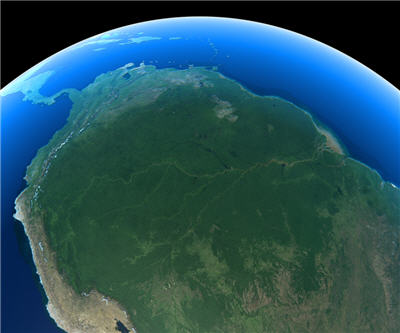Brazil must choose between potash and oil

Brazilian miner Vale SA, already the world’s number one iron ore miner and second most valuable global miner, plans to invest $15 billion by 2020 to diversify its assets and become one of the world’s biggest fertilizer producers.
From output of just 625,000 tons of potash this year, annual targets for 2017 are 10.7 million tons with projects in various stage of development in Mozambique, Argentina and the Amazon basin. Vale’s separately listed Vale Fertilizantes SA (SAO:VALE5) is up 50% in value on the Sao Paulo bourse over the last six months.
Brazil relies on imports for 80% of its fertilizer needs and the government considers the industry strategic as it ramps up agricultural production. Apart from Vale a number of potash producers have been zoning in on the Amazon – $68 billion is forecast to be invested in Brazil mining over the next four years.
Fox Business reports the biggest project is Carnalita, in Sergipe state, which could produce 1.2 million tons a year of potash. This project is under discussion with Brazilian state oil company Petrobras, as it is located on land belonging to Petrobras which has also discovered oil there.
Bloomberg reported back in March, following the ouster of the then CEO of Vale, that the Brazilian government which owns a so-called golden share in Vale has criticized the company for not investing more in the country’s steel, shipbuilding and fertilizer industries to create jobs instead of focusing on supplying iron-ore and other raw materials to China.
MINING.com reported last month private company Potassio do Brasil, partly owned by Canadian merchant bank Forbes and Manhattan, is seeking to renew negotiations with Brazil’s government over rights to a potash reserve in the Amazon (also currently held by Petrobras) adjacent to what it called a ‘world class’ potash discovery.
The firm is in the process of raising $100 million and says off-take agreements are already in place with large Brazilian Agriculture Co-operatives. Geological, seismic and borehole surveys at its project indicate the basin has similar scale and geological properties as the Saskatchewan basin in Canada according to Potassio do Brasil.
The Potassio do Brasil mine will take $4 billion to develop and follows news earlier in August from Toronto-listed Verde Potash which announced a 1.1 billion tonne resource at its Amazon Cerrado Verde project that is suitable for open pit mining.
The discoveries come as Brazil readies a new mining royalty regime – in certain instances doubling the rate – which would be managed by government decree. Mining investment in the world’s fifth largest economy is also predicted to accelerate to $68.5 billion through 2015.
{{ commodity.name }}
{{ post.title }}
{{ post.date }}




Comments
Kennymaupin
What all is in Potash to be so expensive?